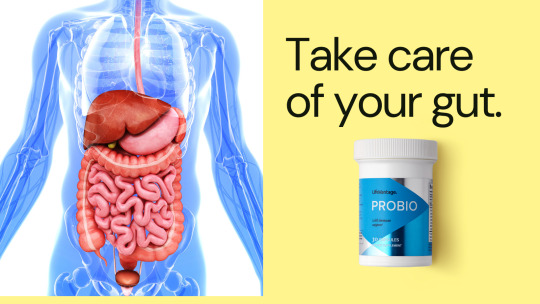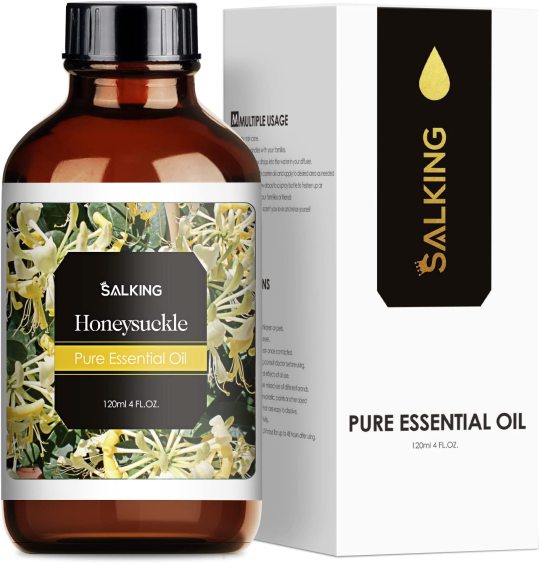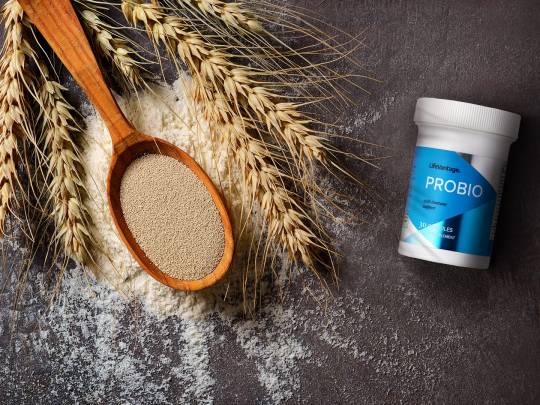#digestivewellness
Explore tagged Tumblr posts
Text
Clear skin is more than just skincare: Gut Health
(A science based read)

What you eat is shown through your skin and on body. If your constantly shoving junk down your throat, junk is what will be shown on you. Essentially what you eat is what you are.
Eat bad -> bad skin
Eat good -> good skin
If your constantly breaking out and you feel icky. You need to figure out what is up with your gut health.
Research suggests many skin disorders are linked to an altered or unbalanced gut microbiome.
“When the relationship between gut microbiome and the immune system is impaired, subsequent effects can be triggered on the skin, potentially promoting the development of skin diseases.”
“13 Several dermatologic conditions, such as acne, atopic dermatitis, psoriasis, and rosacea are linked with intestinal dysbiosis. 223 Many studies have associated gastrointestinal health with skin homeostasis and allostasis, and there is evidence of a bidirectional interaction between the gut and the skin.”
Diet, drugs and other consumed substances affect skin through gut microbiome:
“Several studies have related the diversity and pathogenicity of the gut microbiome to skin disorders, which can be significantly altered by long-term dietary patterns. 43,105–107 Diet can affect the skin condition both positively and negatively through alteration of the gut microbiome, indicating that there is a relationship between the skin and the gut. 16 Not only diet, but also many synthetic and natural products consumed by humans as drugs can provide direct and indirect evidence on the connection between gut microbiome and skin.”
High and low fat diet:
“In the gut, a diet high in industrial trans-fatty acids increases the number of harmful microbes (such as Desulfovibrionaceae and Proteobacteria) while suppressing populations of advantageous microorganisms (e.g. members of Bacteroidetes, Lachnospiraceae, and Bacteroidales). 121 Refined and hydrogenated oils (e.g., soybean, sunflower, safflower, canola, corn, and vegetable oils) can cause inflammation in the gut, which then manifests on the skin.”
Industrially produced trans fat can be found in margarine, vegetable shortening, Vanaspati ghee, fried foods, and baked goods such as crackers, biscuits and pies. Baked and fried street and restaurant foods often contain industrially produced trans fat.
Prebiotics:
“133,134 Prebiotics, such as fructooligosaccharides, galactooligosaccharides, inulin, polydextrose, lactulose, sorbitol, and xylitol are a promising group of compounds that modulate the gut microbiome and can also provide skin benefits.”
“The effect of prebiotics on the skin condition is also obvious. For example, a Lactobacillus extract helps to reduce the size of acne lesions as well as inflammation by reducing skin erythema, improving skin barrier function and lowering the microbial counts on skin.”
types of prebiotics include:
Chicory root
Garlic
Onion
Dandelion greens
Apples
Bananas
Jerusalem artichoke
Asparagus
Probiotics:
“Probiotics can prevent gut colonization by pathogens and support anti-inflammatory responses by producing metabolites with anti-inflammatory properties. The most common probiotic microbes currently in use belong to the genera Bacillus, Bifidobacterium, Enterococcus, Escherichia, Lactobacillus, Saccharomyces, and Streptococcus. 143,144 Several beneficial effects of probiotic consumption have been demonstrated on many dermatological conditions, thus proving the existence of the gut-skin axis.”
Common types of probiotics include:
Lactobacillus: This is a common probiotic found in fermented foods, such as yogurt.
Bifidobacterium: This probiotic is found in some dairy products and helps with the symptoms of irritable bowel syndrome.
Saccharomyces boulardii: This is a type of yeast found in many probiotics. You can find these probiotics and more in supplements and select foods.
Yogurt
Buttermilk
Cottage cheese
Miso soup
Sauerkraut
Kefir
Kimchi
Tempeh
Protein:
“The proteins from animal-based food sources may have better effects on gut microbiota compared to plant-based food sources due to the higher protein digestibility of animal proteins and the fact that the digestion of plant proteins may be limited by the presence of antinutritional factors found in plants [67]. Animal proteins have more balanced essential amino acids than plant proteins [68,69] and are thus considered higher quality protein.”
“Dairy and meat protein intake at a recommended level increased the abundance of the genus Lactobacillus and maintained a more balanced composition of gut microbiota compared to soy protein, which is beneficial to the host [25,26,28].”
“Your body makes lots of different peptides, each of which has a different role. Scientists can also make synthetic peptides in the lab. Companies have been adding peptides to skin care products for decades.”
High protein foods:
Salmon
Chicken breast
Tuna
Red split lentils
Tofu
Greek yogurt
Fibre:
“Dietary fibre is comprised of plant-based carbohydrates that cannot be metabolised by digestive enzymes encoded in the human genome, such as amylase. Instead, fibre can only be metabolized by certain species of gut microbiota through anaerobic fermentation, with the main product of this reaction being SCFAs.”
“Dietary fibre is a carbohydrate in plant foods, such as whole grains, vegetables, fruit, and legumes, which have been dominant in human diets for millions of years. From the Paleolithic era, when the hunter-gatherers mainly ate fruit and wild grains, to the agricultural era, when crops began to be cultivated, the ancients consumed more than 100 g of various digestible and indigestible dietary fibre from plants per day [1,2].”
Fibre rich foods:
Chia seeds
Lentils
Broccoli
Avacado
Carrots
Red kidney beans
Raspberries
XOXO
#angelacademy#self improvement#that girl#glow up#beauty#skincare#gut health#digestivehealth#digestive system#digestivewellness#clear skin
18 notes
·
View notes
Text

The Holidays are here, and so are delicious meals. Let's give our gut some extra love and support for processing these delicous foods for us and keeping our digestive system optimal and healthy 💛
#biohacking#health#supplements#wellness#guthealth#healthylifestyle#health and wellness#probiotics#healthyhabits#probioprobiotic#nutrition#healthy#digestivehealth#digestive system#digestivewellness#immune system#immunesupport#immune health
49 notes
·
View notes
Note
Any tips for achieving a flat stomach like yours? Love ur blog btw :)
Thank u so much sweetie! I'll be posting my ab workout routine soon♥ but my best advice is GUT health. So I'll be sharing some tips and tricks for a better nutrition that consists of what you eat and HOW you eat. It also involves some micro-habits to activate the parasympathetic NS and reduce your cortisol levels to improve your digestion, because no matter how hard you try or how good you eat, if you don't swtich your body to a calm... "rest & digest" state your body can't make the process of absorption or elimination of the nutrients that you put on your body.
#healthylifestyle#guthealth#fitspo#wellbeing#nutrition#workout#tumblrlife#growth mindset#glow up#body care#immune system#self love#green juice girl#detox#healthspo#beautiful body#amazing body#flat belly#digestivewellness#digestion#meditation#it girl#that girl#clean girl
13 notes
·
View notes
Text
I have become very addicted to olipop soda. I buy one every time I get out of work. Someone help the olipop virus has spread to me :,)
My favorite is the banana one (and its not because Im gay)
-phrog
#olipop#olipop is actually good#digestivehealth#digestivewellness#the brotherhood#the croaker movement
7 notes
·
View notes
Text
#health & fitness#health#health and wellness#digestion#digestivehealth#digestive disorders#digestivewellness#constipation#LooseMotionRelief#HomeRemedies#NaturalRemedies#StopDiarrhea#DigestiveHealth#QuickRelief#HealthTips#AdultHealthCare#HydrationTips#BRATDiet
2 notes
·
View notes
Text
Learn natural ways to boost digestion and feel lighter every day. Get expert advice on improving gut health and try DigestSync for optimal results.
#digestivewellness#digestivehealth#digestion#architectural digest#boost#naturalremedies#natural supplements#gaster#bloated stomach#stomach issues#bloated gut#so bloated#bloat#feeling bloated#bloatedtummy#tummy#food#foodie#eating disoder trigger warning#tw eating issues#healthy lunch#lunchtime#dinner#breakfast#everyday life#everydaygirls#advice#results#better results#bpd feels
2 notes
·
View notes
Text
When health is absent, wisdom cannot reveal itself, art cannot manifest, strength cannot fight, wealth becomes useless, and intelligence cannot be applied.
-Herophilus, Greek Physician, 335-280 BC
www.coredigestive.com
6 notes
·
View notes
Text
Water immediately after meals?
A never-ending point of debate (which later turns argument) on our dining table is not to gulp water immediately after meal. Let’s know what’s what on a simpler note.
Drinking water and eating food are associated with digestive system in our body. We all understand the process of digestion. Now to the point of discussion, drinking water immediately after meal, it dilutes digestive enzymes and gastric juices and retards the process of digestion, altering the natural time of digestion. It also rushes the food flow down to large intestine which creates hunger, faster than expected which could be a cause for overeating and bloating. It can also be a cause for acidity or heartburn by altering the secretions and their quantities. The major complaint is when glucose in undigested foods is converted into fat and gets stored in the body resulting in insulin spike, leading to diabetes and also obesity. This could be better supported by this video.
youtube
Also, water sipped along with meals suggest the aid in easier digestion as it makes food softer, easy to chew and swallow. It also keeps a check and makes us eat mindfully. It makes the excretion, an important part of digestion process smoother.
The conclusion I would draw from these arguments turned discussions and present scientific evidences is, LISTEN TO YOUR BODY, DO THE NEEDFUL. Its ok to drink water if thirsty while eating. It is advisable not to gulp the water in a go but smaller sips would do good. The biggest note is to sip water only, but not any other beverage because water is the best undoubtedly.
3 notes
·
View notes
Text
The mosquitoes in my room are singing me a harmony. My digestive system just joined in.
2 notes
·
View notes
Text

Embrace Nature's Fragrant Treasure: Honeysuckle Essential Oil
Honeysuckle, known for its captivating aroma and vibrant blossoms, has been treasured for centuries. Extracted from the flowers of the honeysuckle plant, honeysuckle essential oil offers an array of benefits for both the mind and body. In this exploration, we delve into the wonders of honeysuckle essential oil and its remarkable advantages. Let's uncover the enticing benefits of this natural gem.
Benefits of Honeysuckle Essential Oil:
Aromatherapy Delight: Honeysuckle essential oil fills the air with a sweet, floral scent that uplifts the spirit and promotes relaxation.
Skin Nourishment: Honeysuckle oil is rich in antioxidants, vitamins, and minerals, which can help rejuvenate and nourish the skin, leaving it soft and radiant.
Anti-Inflammatory Properties: The anti-inflammatory properties of honeysuckle essential oil may assist in soothing skin irritations and reducing redness and inflammation.
Mood Booster: The invigorating aroma of honeysuckle oil can elevate mood, promote positive feelings, and reduce stress and anxiety.
Respiratory Support: Inhaling the aroma of honeysuckle oil may provide respiratory relief, easing congestion and promoting clearer breathing.
Digestive Aid: Honeysuckle essential oil is believed to support healthy digestion and may help alleviate digestive discomfort.
Immune System Boost: The immune-boosting properties of honeysuckle oil may help strengthen the body's natural defense mechanisms.
Antioxidant Protection: Honeysuckle oil is packed with antioxidants that help combat free radicals, promoting overall health and well-being.
Natural Perfume: Honeysuckle essential oil's captivating scent makes it a delightful addition to natural perfumes and fragrance blends.
Environmental Freshener: Adding a few drops of honeysuckle oil to diffusers or room sprays can infuse your surroundings with a fresh, floral scent, creating a welcoming atmosphere.
Unleash the captivating essence of honeysuckle essential oil and indulge in its rejuvenating benefits. Incorporate this natural treasure into your wellness routine and experience the wonders it brings.
Note: It's important to use high-quality, pure honeysuckle essential oil and dilute it properly before topical application. If you have specific health concerns or are pregnant or nursing, consult with a qualified aromatherapist or healthcare professional before using honeysuckle essential oil. Order Now

To see a full list of essential oils and explore their diverse benefits, click here.
#HoneysuckleEssentialOil#NaturalRemedies#Aromatherapy#SkinCare#MoodEnhancement#RespiratoryHealth#DigestiveWellness#ImmuneBoost#AntioxidantPower#NaturalFragrance
3 notes
·
View notes
Text
🥦 Misunderstood Gut Foods: They’re Not the Villains You Think
Some foods walk into the room and immediately get side-eye. “Oh no, not you again.” But hold up — maybe they’re just… misunderstood.
1. Beans
Yes, they’re gassy. Yes, they have a song. But beans are packed with fiber, protein, and prebiotics that your gut bugs love. 👉 Tip: Soak them well and introduce slowly. Your gut will adjust — and thank you.
2. Garlic & Onion
The social life killers. But for your gut flora? They're VIP guests. Rich in inulin (a natural prebiotic), these two help feed the good bacteria. Just maybe avoid them before a date.
3. Cabbage
Cabbage gets judged hard for the whole “oh no, gas!” thing. But fermented cabbage (hello, kimchi and sauerkraut) is a gut health treasure chest. Just don’t go from 0 to kimchi-kilo in one sitting.
4. Bananas (especially green ones)
Green bananas might seem weird, but they’re full of resistant starch — which acts like a fertilizer for your gut garden. Soft yellow ones = sugar. Green ones = slow gut wins.
5. Sourdough Bread
Not all bread is a villain. Sourdough’s natural fermentation makes it easier to digest, with less gluten and more gut-friendly acids. Bonus: it smells like a warm hug.
🌿 Gut Takeaway:
Sometimes the foods that scare you are the ones your microbiome throws a party for. It’s not personal. It’s a bacteria business.
Read more on www.supertums.com
#supertums#guthealth#healthyliving#healthygut#microbiome#digestion#digestivewellness#digestivehealth#probiotics#bloatingrelief#guthealthmatters#gut#healthyeating#healthy food#nutrition#health and wellness
0 notes
Text

Understanding Probiotics: Benefits and How they Work
#biohacking#health#wellness#supplements#weight loss#guthealth#immunesupport#digestivehealth#digestivewellness#digestive issues#probioprobiotic#probiotics
53 notes
·
View notes
Text
How Salads Help Improve Gut Health: A Digestive Wellness Guide 🥗🌱
Did you know that eating salads can help improve your gut health? Packed with fiber, nutrients, and probiotics, salads are a great way to support your digestive system and keep things running smoothly. 🌿✨
✨ What You'll Learn:
How fiber-rich salads aid digestion and gut health
Key ingredients that promote a healthy gut microbiome
Simple tips for making gut-friendly salads every day
��� Pro Tip: Include ingredients like fermented foods, leafy greens, and high-fiber veggies to keep your gut happy and healthy!
Boost your digestive wellness with these delicious and gut-friendly salads! 🥒🥑👉 Read More Here

0 notes
Text

Myth: You can't live a normal life without a gallbladder. Fact: Your body adjusts, and with minor dietary modifications, you can live a healthy, normal life!
Call Dr. Mihir Chitale- robotics surgeon in Pune, best laparoscopic surgeon in Pune, minimally invasive surgeon in Pune, best cancer surgeon in Pune
0 notes
Text
What is Gut Health? How to maintain a healthy gut health?
Gut health is the general well-being of the gastrointestinal (GI) tract, including good digestion, absorption of nutrients, a balanced gut microbiome, and all the while being free from GI diseases. A healthy gut also supports immunity, mental health, and physical well-being. Diet, lifestyle, and trillions of microorganisms in the gut microbiome influence gut health.
Natural Ways to Sustain a Healthy Gut
Eat a Variety of Foods: At least 30 different types of plant-based food items should be consumed every week for a better diversity of the microbiome. Include fiber-rich foods like fruits, vegetables, whole grains, nuts, and seeds.
Include Food Rich in Polyphenols: Add colorful fruits and vegetables to your diet, along with tea, coffee, cocoa, and dark chocolate.
Have Fermented Foods: Incorporate yogurt, kefir, kimchi, sauerkraut, kombucha, and tempeh as sources of probiotics that encourage beneficial gut bacteria.
Stay Hydrated: Drink water enough to help digestion and avoid constipation.
Chew Your Food Well: Slowly eating and chewing well will help ease digestive discomfort like bloating and gas.
Limit Processed Foods: Steer clear of any food full of sugar, fats, or artificial sweeteners, which have the potential for being harmful to intestinal flora.
Exercise Regularly: Cardio workouts, including walking or cycling, will stimulate gut functionality and boost microbiome diversity.
Control Stress: Utilize relaxation techniques such as meditation or yoga to lessen the negative impact stress has on gut health.
Together, these strategies will help in balancing the microbiome and maintaining overall digestive health.
If you are looking for a natural supplement for gut health, then you can check it out here.
0 notes